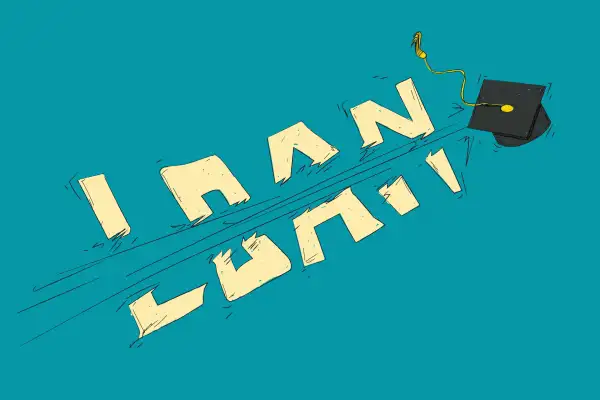The Duty of Credit Score Scores in Securing Local Business Loans for Business Owners
In the affordable landscape of entrepreneurship, protecting a small company financing commonly rests on the essential variable of credit history. These ratings act as a numeric representation of a business owner's creditworthiness, affecting lenders' choices and the terms used. A higher credit report can open up doors to beneficial lending conditions, while a lower rating may provide significant barriers. Yet, what exactly influences these scores, and how can entrepreneurs strategically enhance them to improve their possibilities of safeguarding vital funding? The response to these concerns hold the secret to opening possible development chances for small companies.
Recognizing Debt Ratings
Credit report are essential numerical depictions of a person's credit reliability, serving as an essential variable in monetary decision-making for lending institutions. These scores are stemmed from an extensive evaluation of a person's credit background, encompassing facets such as payment background, credit report use, length of credit rating, brand-new credit history accounts, and kinds of credit score used. Normally varying from 300 to 850, greater ratings indicate lower threat to loan providers, while reduced ratings show higher threat.
The estimation of credit history is brought out by credit report bureaus making use of proprietary algorithms, with one of the most commonly identified models being FICO and VantageScore. Each design might weigh aspects somewhat differently, yet they all objective to offer a consistent measure of credit rating risk. A strong credit rating mirrors the individual's reliability in managing financial debt, making timely repayments, and preserving a healthy balance in between credit scores made use of and offered credit scores.
It is very important for people and company proprietors to recognize their credit rating, as these numbers can have significant effects past personal financing. Consistently monitoring one's debt record, fixing inaccuracies, and embracing audio monetary habits can considerably improve credit history, thus enhancing the person's total economic account and creditworthiness.
Significance for Car Loan Authorization
Comprehending one's credit rating rating is fundamental, as it plays a significant function in the procedure of car loan authorization for small businesses. Lenders use credit history scores as a primary metric to assess the credit reliability of candidates.
As small organizations frequently call for timely accessibility to funds for development and sustainability, keeping a durable credit scores score comes to be important. Hence, understanding and handling one's credit rating is a crucial component of preparing for financing applications and attaining organization success.
Aspects Influencing Scores
Several variables contribute to the decision of a credit history score, each playing a pivotal function in forming an individual's credit history profile. A high proportion of used credit to offered credit scores can recommend financial overextension, detrimentally affecting credit reliability.
Length of credit rating likewise aspects into credit report computations, with a much longer credit rating why not try here typically seen much more positively. This metric gives insight right into the person's long-term monetary behavior, providing lending institutions a wider point of view on their credit history management abilities. Additionally, the sorts of debt in use are thought about, as a mix of charge account, such as rotating charge card and installment finances, can demonstrate the ability to take care of different financial commitments.
Last but not least, current debt queries might affect scores (pre approval student loans). Regular applications for new credit rating can suggest economic distress, hence negatively affecting the rating. Each of these aspects is important in the detailed examination of a credit report, impacting an entrepreneur's ability to safeguard a little service lending
Improving Your Debt Rating
Improving one's credit history rating is akin to nurturing a garden; mindful attention to essential locations can yield considerable renovations. Settlement background comprises a considerable section of a debt score; thus, establishing up automated pointers or payments can help preserve consistency. High debt usage ratios, or the amount pop over to these guys of credit score made use of relative to the credit history limitation, can negatively impact scores.

Finally, preserving older charge account can positively influence the typical age of credit score, which is another consider racking up models. While new credit report inquiries ought to be lessened to prevent short-lived rating dips, accountable credit report monitoring over time will normally cause rack up renovation, hence boosting eligibility for positive bank loan terms.
Alternative Financing Choices
Business owners with less-than-ideal credit scores might locate these alternatives not only a lot more easily accessible but likewise customized to their unique company demands. These platforms typically use quicker approval procedures and even more adaptable terms than traditional banks, often considering elements past credit report scores, such as service performance and money flow.
In addition, microloans, frequently given by not-for-profit organizations, cater to little services and startups. They provide smaller finance quantities with reduced rate of interest prices, making them ideal for entrepreneurs who call for limited capital.
Invoice financing and seller cash loan are likewise worth thinking about. The previous involves marketing impressive invoices to a lender at a discount, while the last offers a breakthrough on future sales. Both alternatives can boost cash flow without the rigorous credit scores needs of traditional fundings.
Final Thought

These scores are acquired from a thorough analysis of an individual's credit report background, including aspects such as settlement history, debt use, length of credit scores history, new credit scores accounts, and kinds of credit history used (pre approval browse around this site student loans). A solid credit scores rating shows the person's integrity in handling debt, making prompt repayments, and keeping a healthy and balanced balance between credit rating used and offered credit rating
